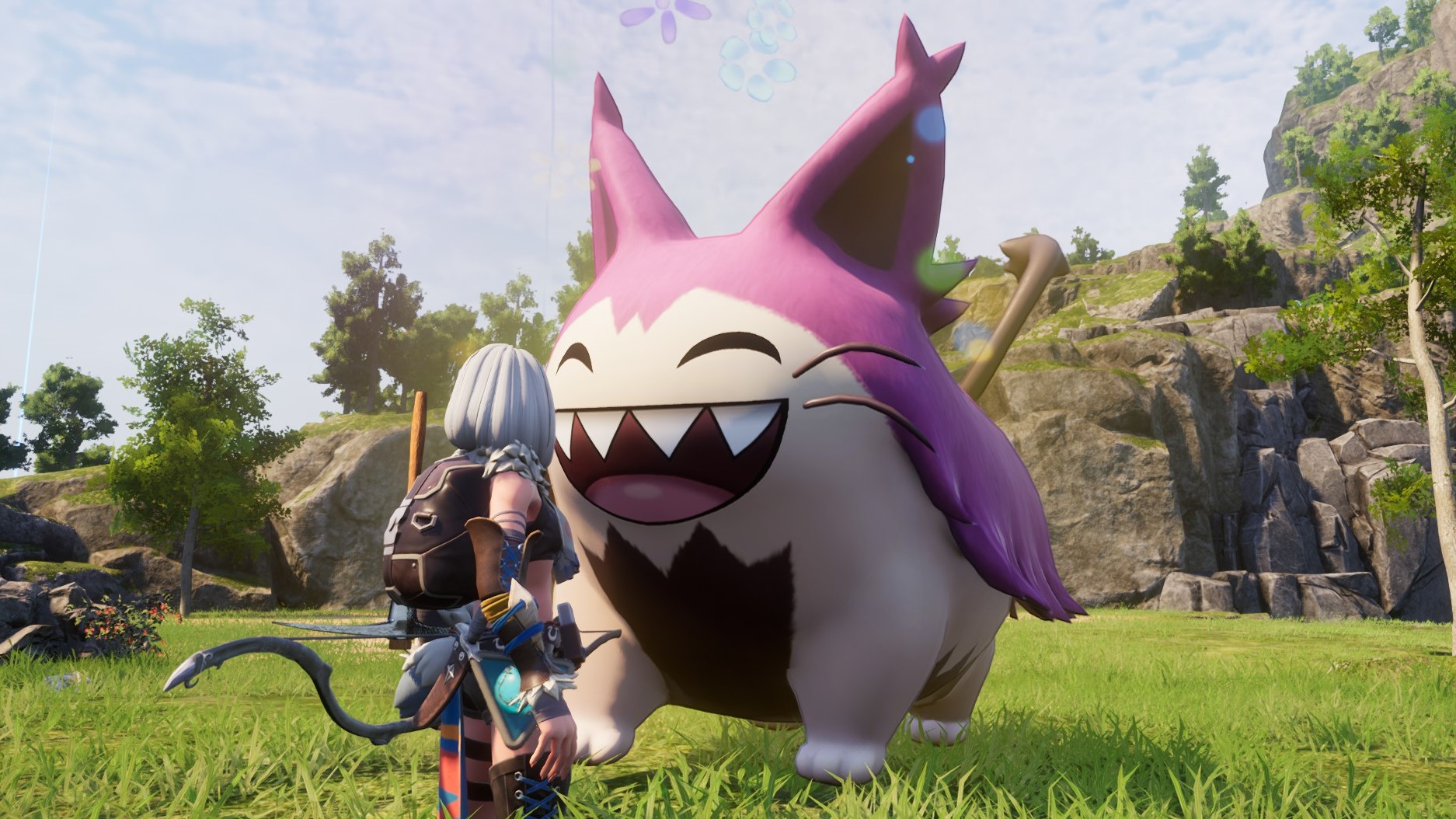Palworld dev says talk of player dropoff is 'lazy' and 'it is fine to take breaks from games'
"New content will come, and it's going to be awesome, but these things take a little bit of time."

Palworld is 2024's first surprise hit, combining all the familiar elements of the popular survival genre with an irresistible layer of Pokémon-inspired Pals to do your bidding. It's a game with no firm endpoint but a finite amount of stuff to do, and so unsurprisingly plenty of players picked it up, played it, and moved onto other things.
Players and developers now have access to a wealth of statistics about games, and a particular bone of contention for many is how numbers like concurrent players can be used as a bit of a cudgel, and sometimes in an inaccurate manner. Concurrents can be a useful guide to how certain multiplayer-focused games are doing (and Palworld does have a large co-op element) but have little value for singleplayer games other than confirming that, yes, a lot of folk bought Starfield and played it on launch day. And Palworld's successful and almost viral launch period saw millions playing the game before, almost a month later, a lot of them have moved onto the next thing.
The game has been dinged for its player numbers going down when, really, anyone could've seen this was inevitable. Palworld's not an MMO, it's not a live service game, and it's not something like Counter-Strike 2. The criticism seems to have stung one Pocketpair dev, anyway, who has doubtless just enjoyed the busiest month of their entire life.
Bucky is Pocketpair's community manager, but is also credited on Palworld as a designer and for the localisation. They chose the approaching one-month mark to look back on the game's success, recalling that back in May 2023 (by which time the game had already attracted much attention thanks to the "Pokémon with guns" elevator pitch) "I was convinced that Palworld could break the 50,000 player mark." But that was an aspirational figure, "and I certainly never expected it to reach into the millions."
Pocketpair is working away on any remaining issues as it begins preparing new content and Pals for the game. "Some of you may have had your fun over the last three weeks and found yourself putting the game down," says Bucky. "That is fine. This emerging 'Palworld has lost X% of its player base' discourse is lazy, but it's probably also a good time to step in and reassure those of you capable of reading past a headline that it is fine to take breaks from games.
"You don't need to feel bad about that. Palworld, like many games before it, isn't in a position to pump out massive amounts of new content on a weekly basis. New content will come, and it's going to be awesome, but these things take a little bit of time."
Not sure I've ever felt bad about putting a game down, but the point's a fair one regardless and surely this is how most people play anyway. For my part I have two games that I regularly return to (Counter-Strike 2, Rocket League), then everything else is a one- or two-week dalliance before I hop onto something else. I mean, I don't really want a long-term relationship with most games.
Keep up to date with the most important stories and the best deals, as picked by the PC Gamer team.
"If you are still playing Palworld, we love you," ends Bucky. "If you're no longer playing Palworld, we still love you, and we hope you'll come back for round 2 when you're ready."
Palworld's phenomenal success has seen Pocketpair scrambling to keep up, pouring $500,000 a month into servers to keep the game running and desperate to hire more developers. The headlines that irked Bucky do look a little ridiculous when you realise this is still Steam's third most-played game, hitting a peak of just under 300,000 over the last 24 hours, and Palworld is clearly going to stick around for some time to come: even if its players do take the odd break.

Rich is a games journalist with 15 years' experience, beginning his career on Edge magazine before working for a wide range of outlets, including Ars Technica, Eurogamer, GamesRadar+, Gamespot, the Guardian, IGN, the New Statesman, Polygon, and Vice. He was the editor of Kotaku UK, the UK arm of Kotaku, for three years before joining PC Gamer. He is the author of a Brief History of Video Games, a full history of the medium, which the Midwest Book Review described as "[a] must-read for serious minded game historians and curious video game connoisseurs alike."

